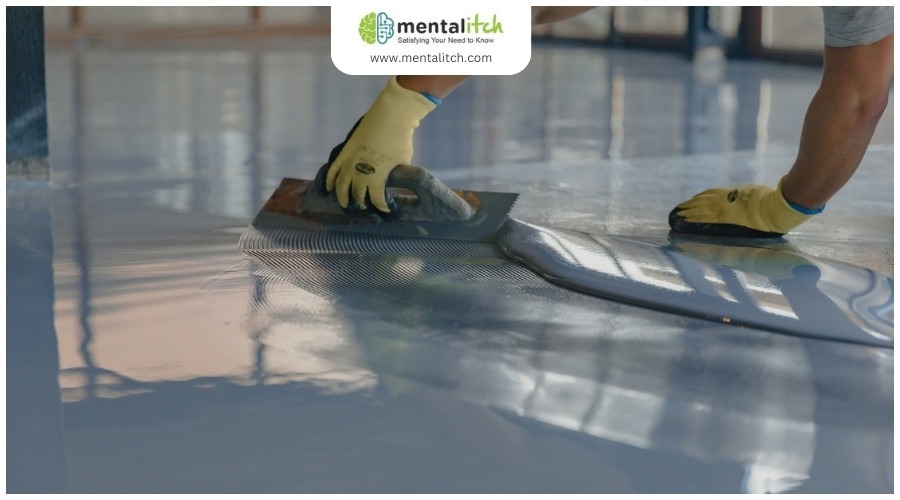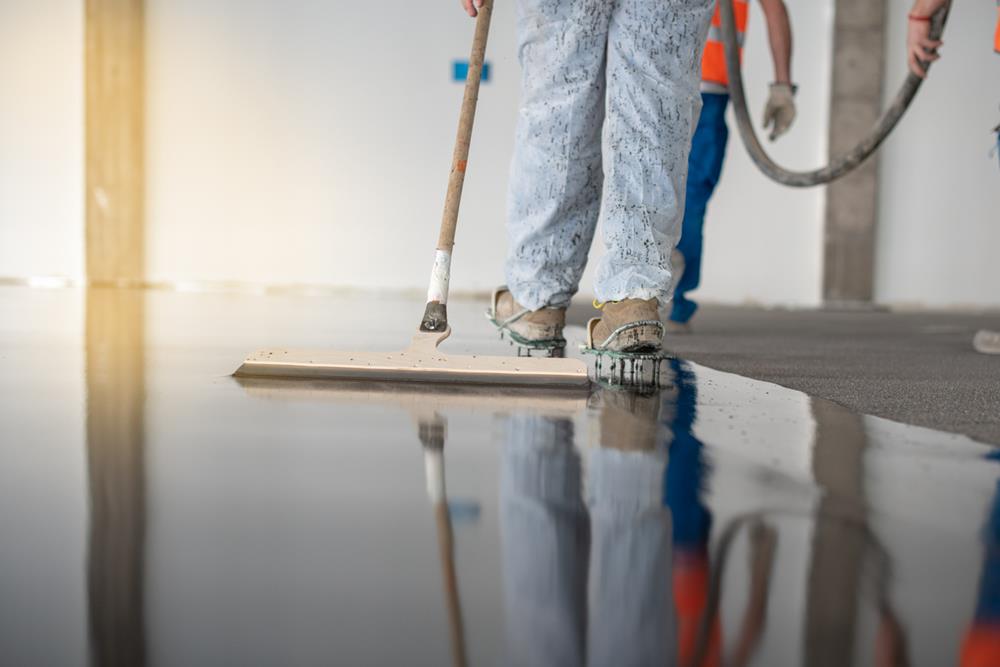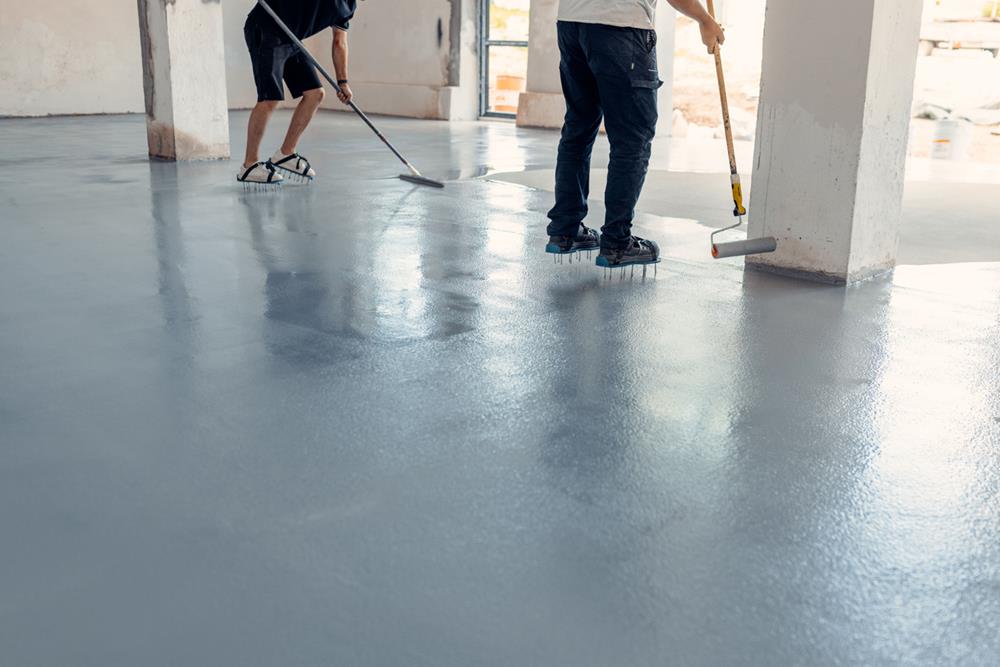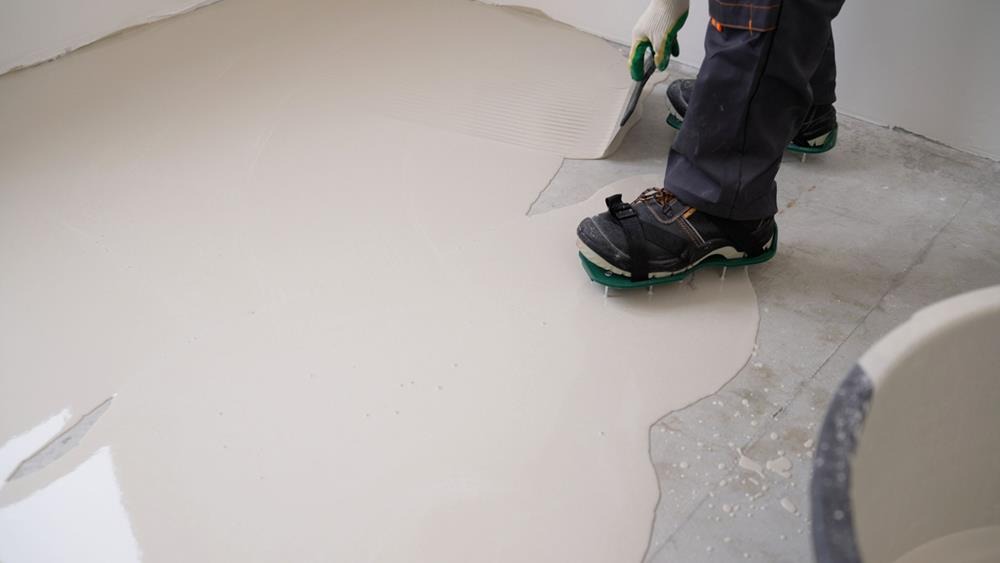Epoxy flooring is quickly becoming popular among commercial builders, developers, architects, and property managers. It is an excellent alternative to the more traditional flooring choices like tiles, and it is durable and easy to maintain. However, some benefits come with epoxy flooring that may be less obvious. If you want to make a smart choice for your commercial epoxy flooring needs, epoxy flooring is the way to go.
What is Epoxy Flooring?
At its core, epoxy flooring is a type of synthetic resin floor system that is applied on top of concrete floors to create a smooth, durable, and high-performance surface that can withstand heavy loads and last for years. This flooring solution is made by mixing a liquid resin with a hardening chemical, which, when applied to a floor, creates a hard, plastic-like surface.
One of the main attractions of epoxy flooring is its versatility. It can be used in various settings, including garages, warehouses, hospitals, and schools, due to its ability to resist wear, tear, and spills. The flooring is also praised for its ease of maintenance; a quick sweep and occasional mopping are all it takes to keep it looking pristine.
Beyond functionality, epoxy flooring offers a range of aesthetic options. It can be mixed with colors and patterns to fit any design theme, from simple and elegant to bold and expressive. Furthermore, its glossy finish can enhance the brightness of an area by reflecting light, making spaces appear larger and more welcoming.
The Benefits of Epoxy Flooring for Commercial Floors
Epoxy flooring is increasingly becoming the go-to option for businesses looking to enhance their workspaces. This durable and versatile flooring solution offers a multitude of benefits that make it ideal for a variety of commercial settings. Here, we’ll outline the key advantages that epoxy flooring provides to commercial environments, showcasing why it stands out as a practical and stylish choice for enhancing business premises.
Durability and Resistance
One of the standout features of epoxy flooring is its exceptional durability. This type of flooring is designed to withstand the rigors of heavy machinery, constant foot traffic, and daily operational wear and tear, making it ideal for warehouses, factories, and retail spaces. Epoxy’s resistance to impact, stains, and moisture also contributes to its longevity, ensuring that commercial floors remain in top condition for years. This durability reduces the need for frequent repairs or replacements, translating to significant savings and minimal operational disruptions for businesses.
Easy Maintenance
Epoxy floors boast a seamless and non-porous surface, which means they do not harbor dust, dirt, or bacteria, making them incredibly easy to clean and maintain. A simple sweep and occasional mopping with mild detergent are all it takes to keep an epoxy floor looking pristine. This ease of maintenance is especially beneficial for commercial settings like hospitals and food processing plants, where hygiene is paramount. Additionally, the low maintenance requirements help businesses save on cleaning costs and resources over time.
Aesthetic Versatility
Beyond their practical benefits, epoxy floors offer remarkable aesthetic versatility. They can be customized with a wide range of colors, patterns, and effects to match any corporate branding or design theme. Whether a business desires a high-gloss finish for a sleek, modern look or a textured surface for added slip resistance, epoxy flooring can be tailored to meet these needs. This customization ability allows businesses to create a positive and lasting impression on clients and employees alike, enhancing the overall atmosphere of the commercial space.
Safety Features
Safety is a critical concern for any commercial facility, and epoxy flooring contributes positively to this area. It can be enhanced with non-slip additives to reduce the risk of slips, trips, and falls, a common hazard in busy workplaces. Additionally, epoxy’s reflective surface can improve lighting in a facility, creating a brighter and safer work environment. By addressing these safety concerns, epoxy flooring helps businesses minimize the risk of accidents and potential liability.
Cost-Effectiveness
When considering the long-term benefits, epoxy flooring is a cost-effective solution for commercial spaces. Its durability and low maintenance requirements mean that the initial investment pays off over time, with reduced costs for repairs, replacements, and cleaning. Additionally, the installation process of epoxy flooring is generally quicker and less disruptive than that of traditional floor coverings, minimizing downtime for businesses and allowing them to continue their operations with minimal interruption.
Interesting Facts About Epoxy Flooring
Beyond its well-known advantages, such as durability and resistance to wear, there are several intriguing aspects that make epoxy flooring a fascinating subject. Here are some noteworthy points that shed light on the lesser-known side of epoxy flooring:
- Global Market Growth: The global epoxy resin market, crucial for epoxy flooring, is on a steep rise and is projected to reach billions of dollars in the coming years, indicating a growing preference for this type of flooring in various industries.
- Wide Range of Applications: Initially popular in industrial settings for its toughness, epoxy flooring is now making significant inroads into residential spaces, showcasing its adaptability and appeal across different uses.
- Sustainability Aspect: Epoxy floors are considered eco-friendly due to their long lifespan and reduced need for replacement, contributing to less waste over time compared to traditional flooring options.
- Color and Design Flexibility: The ability of epoxy to be mixed with a variety of pigments and decorative elements results in endless design possibilities, making each flooring installation unique.
- Temperature Resistance: Epoxy flooring can withstand extreme temperatures, making it suitable for environments ranging from commercial kitchens to industrial plants with high-heat processes.
- Chemical Resistance: Besides physical durability, epoxy floors are highly resistant to chemical spills, which is why they are favored in laboratories and manufacturing plants.
- Speed of Installation: Although the curing process takes time, the actual installation of epoxy flooring is relatively quick, minimizing downtime for businesses and residential areas alike.
- Light Reflectivity: Epoxy’s glossy finish helps enhance lighting efficiency by reflecting light, contributing to brighter interiors and potentially lowering energy costs.
- Health and Safety Standards: With the incorporation of anti-slip additives, epoxy flooring improves safety in workplaces, adhering to health and safety regulations.
- Historical Usage: Though now seen as a modern flooring solution, epoxy resins have been in use for various applications since the early 20th century, evolving significantly over the decades.
Conclusion
In summary, epoxy flooring is a superior choice for commercial environments, blending unparalleled durability with aesthetic flexibility. Its ability to withstand heavy foot traffic, resist chemical spills, and ease of maintenance makes it an ideal option for businesses aiming to combine functionality with style. Moreover, the customization options available with epoxy flooring allow businesses to align their floors with their brand image or design vision, creating spaces that are not only practical but also visually appealing.
Additional Suggestions
- Commercial epoxy flooring is one of the best choice for a commercial floor, especially if you are looking for durability and easy maintenance.




